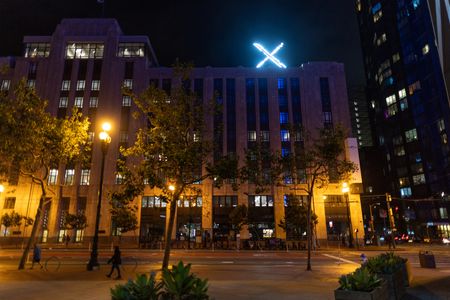By Brian Love
PARIS (Reuters) -Film director Jean-Luc Godard, the godfather of France’s New Wave cinema, died on Tuesday aged 91, newspaper Liberation and other French media said.
Godard was among the world’s most acclaimed directors, known for such classics as “Breathless” and “Contempt”, which pushed cinematic boundaries and inspired iconoclastic directors decades after his 1960s heyday.
His movies broke with the established conventions of French cinema and helped kickstart a new way of filmmaking, complete with handheld camera work, jump cuts and existential dialogue.
For many movie buffs, no praise is high enough: Godard, with his tousled black hair and heavy-rimmed glasses, was a veritable revolutionary who made artists of movie-makers, putting them on a par with master painters and icons of literature.
“It’s not where you take things from – it’s where you take them to,” Godard once said.
Godard was not alone in creating France’s New Wave (Nouvelle Vague), a credit he shares with at least a dozen peers including Francois Truffaut and Eric Rohmer, most of them pals from the trendy, bohemian Left Bank of Paris in the late 1950s.
However, he became the poster child of the movement, which spawned offshoots in Japan, Hollywood and, more improbably, in what was then Communist-ruled Czechoslovakia as well as in Brazil.
“We owe him a lot,” former French culture minister Jack Lang wrote in an emailed statement. “He filled cinema with poetry and philosophy. His sharp and unique eye made us see the imperceptible.”
Quentin Tarantino, director of 1990s cult films “Pulp Fiction” and “Reservoir Dogs”, is among a more recent generation of film makers who took up the mantle of the boundary-bending tradition initiated by Godard and his Paris Left Bank cohorts.
Earlier came Martin Scorsese in 1976 with “Taxi Driver”, the disturbing neon-lit psychological thriller of a Vietnam veteran turned cabbie who steers through the streets all night with a growing obsession for the need to clean up seedy New York.
Godard was not everyone’s idol. Wild-child Canadian director Xavier Dolan, who at 25 shared an award with an octogenarian Godard at the Cannes film festival in 2014, courted controversy every bit as much as Godard did but called him “the grinchy old man” and “no hero of mine”.
NEW WAVE, NEW WAYS
Godard was born into a wealthy Franco-Swiss family on December 3, 1930 in Paris’s plush Seventh Arrondissement. His father was a doctor, his mother the daughter of a Swiss man who founded Banque Paribas, then an illustrious investment bank.
This upbringing contrasted with his later pioneering ways. Godard fell in with like-minded folk whose dissatisfaction with humdrum movies that never strayed from convention sowed the seeds of a breakaway movement which came to be called the Nouvelle Vague.
With its more forthright, offbeat approach to sex, violence and its explorations of the counter-culture, anti-war politics and other changing mores, the New Wave was about innovation in the making of movies.
Godard was one of the most prolific of his peers, producing dozens of short- and full-length films over more than half a century from the late 1950s.
“Sometimes reality is too complex. Stories give it form,” Godard said.
Most of his most influential and commercially successful films came in the 1960s, including “Vivre Sa Vie” (My Life to Live), “Pierrot le Fou”, “Two or Three Things I Know About Her” and “Weekend”.
He switched to directing films steeped in leftist, anti-war politics through the 1970s before returning to a more commercial mainstream. Recent works, however – among them “Goodbye to Language” in 2014 and “The Image Book” in 2018 – were more experimental and slimmed the audience largely to Godard geeks.
(Reporting by Brian Love, Additional reporting by Ingrid Melander, Sudip Kar-Gupta; Editing by Raissa Kasolowsky)












